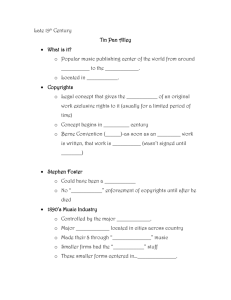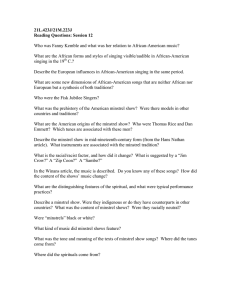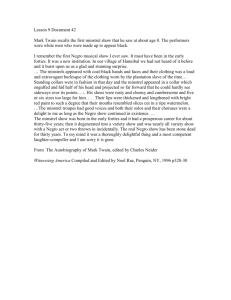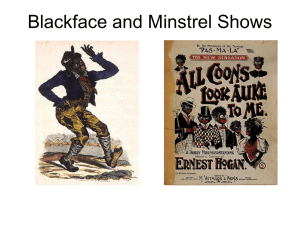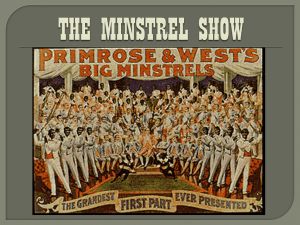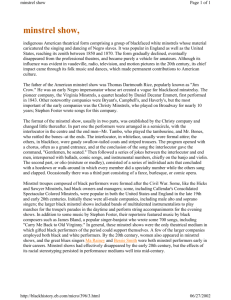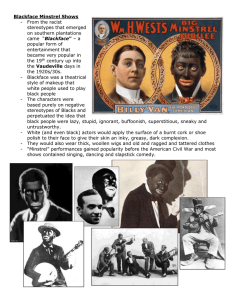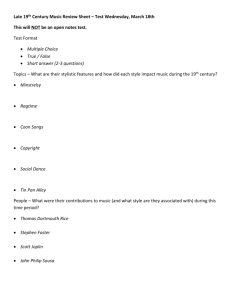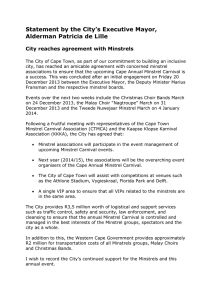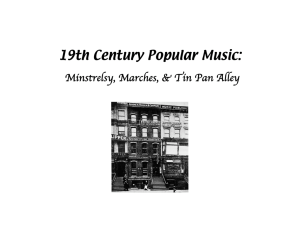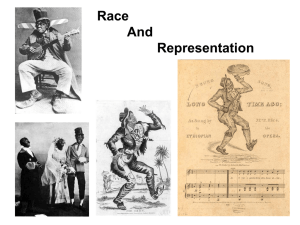Songs and dances of various ethnic heritage enriched American
advertisement
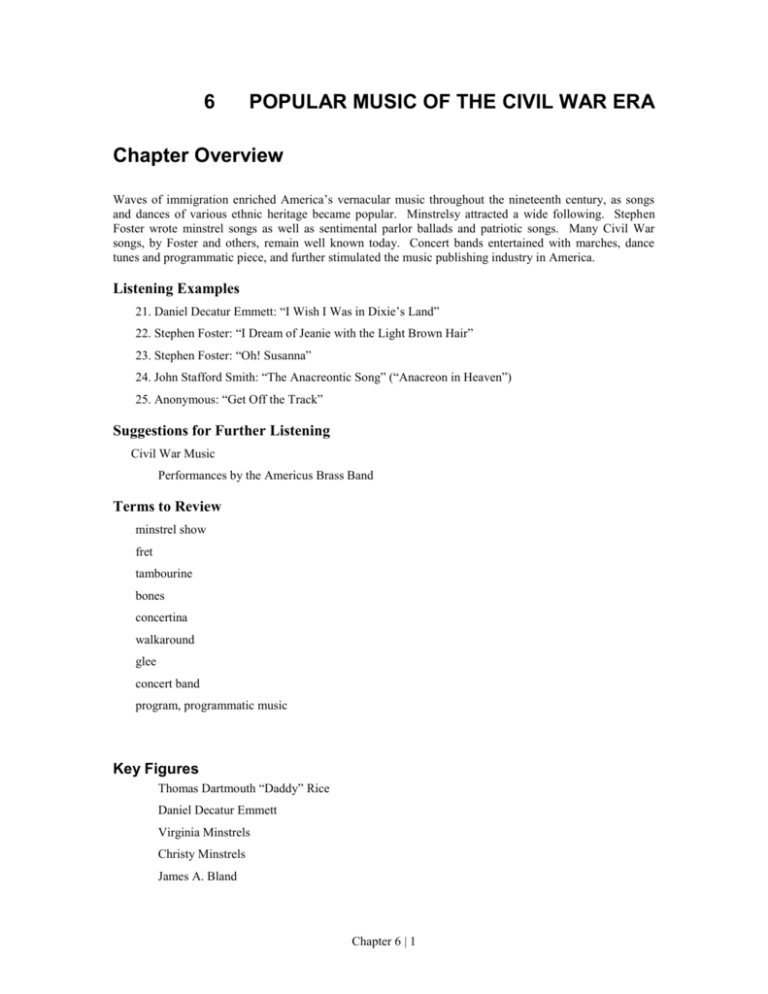
6 POPULAR MUSIC OF THE CIVIL WAR ERA Chapter Overview Waves of immigration enriched America’s vernacular music throughout the nineteenth century, as songs and dances of various ethnic heritage became popular. Minstrelsy attracted a wide following. Stephen Foster wrote minstrel songs as well as sentimental parlor ballads and patriotic songs. Many Civil War songs, by Foster and others, remain well known today. Concert bands entertained with marches, dance tunes and programmatic piece, and further stimulated the music publishing industry in America. Listening Examples 21. Daniel Decatur Emmett: “I Wish I Was in Dixie’s Land” 22. Stephen Foster: “I Dream of Jeanie with the Light Brown Hair” 23. Stephen Foster: “Oh! Susanna” 24. John Stafford Smith: “The Anacreontic Song” (“Anacreon in Heaven”) 25. Anonymous: “Get Off the Track” Suggestions for Further Listening Civil War Music Performances by the Americus Brass Band Terms to Review minstrel show fret tambourine bones concertina walkaround glee concert band program, programmatic music Key Figures Thomas Dartmouth “Daddy” Rice Daniel Decatur Emmett Virginia Minstrels Christy Minstrels James A. Bland Chapter 6 | 1 Stephen Foster Francis Scott Key The Hutchinson Family Patrick S. Gilmore Visuals Henry Ossawa Tanner, Banjo Lesson Scene from a minstrel show Julia Ward Howe A concert band, circa 1875 Critical Thinking Discuss some of the reasons minstrelsy became so popular just at the time of rising tensions between North and South and between whites and blacks. Which does it reflect more: white people’s contempt for, or fascination with, black culture? What might be some of the reasons that blacks performed—in blackface—on the minstrel stage after the Civil War? Do you recognize any echoes of the minstrel tradition in contemporary American culture? In his book Raising Cain: Blackface Performance from Jim Crow to Hip Hop, W. T. Lhamon Jr. suggests (in a picture on the book jacket) a relationship between a minstrel performer dancing in the 1840s and M. C. Hammer performing in the 1990 hip-hop video “Hammer Time.” Can you support or refute Lhamon’s suggestion? Would you choose “The Star Spangled Banner” or another patriotic song as America’s national anthem? If another, which one, and why? A young divinity student named Samuel Francis Smith set the words to one candidate for the American national anthem, “America,” to a German tune, “Heil Dir im Siegerkranz,” also used as the Prussian national song and the British royal anthem as well. (There had been Dutch, Danish, French, Swiss, and Austrian versions, too.) Oliver Wendell Holmes (a close friend of the poet) suggested that had the poet written “Our country” instead of “My country, ‘tis of thee” the hymn would not have been “immortal.” Do you agree or disagree that the choice of “My” instead of “Our” was a “master stroke”? Further Topics for Essay or Discussion 1. Compare the differences we perceive between popular, concert, and religious music today with the ways in which nineteenth-century Americans considered music. 2. Why do you suppose the songs of Stephen Foster—of all American composers—remain extremely well known and loved around the world? Chapter 6 | 2
